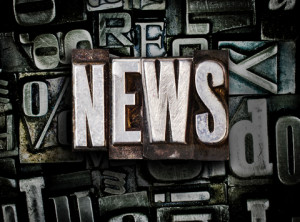 As I've previously mentioned, I finished reading The Information Diet: A Case for Conscious Consumption and, overall, I found it to be great read. Author Clay Johnson makes several excellent points throughout the book, essentially arguing that the problem is information over-consumption, not necessarily information overload. He uses health and nutrition as a metaphor, where we don't blame obesity on food overload but on food over-consumption, and that information over-consumption is the big problem for a variety of reasons.
I do agree with Johnson, and I do agree with some of the solutions that he offers. One of those solutions is avoiding information and news sources that simply confirm our beliefs, typically sites and television shows that tell us that we are right instead of providing the facts or forcing us to challenge our notions or worldview. Another solution he advocates is a program called RescueTime, which monitors how you spend your time online and provides an accurate picture of your information consumption habits. From there, you can figure out what to cut and how to better spend that time that was typically wasted on mindless information consumption.
As I've previously mentioned, I finished reading The Information Diet: A Case for Conscious Consumption and, overall, I found it to be great read. Author Clay Johnson makes several excellent points throughout the book, essentially arguing that the problem is information over-consumption, not necessarily information overload. He uses health and nutrition as a metaphor, where we don't blame obesity on food overload but on food over-consumption, and that information over-consumption is the big problem for a variety of reasons.
I do agree with Johnson, and I do agree with some of the solutions that he offers. One of those solutions is avoiding information and news sources that simply confirm our beliefs, typically sites and television shows that tell us that we are right instead of providing the facts or forcing us to challenge our notions or worldview. Another solution he advocates is a program called RescueTime, which monitors how you spend your time online and provides an accurate picture of your information consumption habits. From there, you can figure out what to cut and how to better spend that time that was typically wasted on mindless information consumption.
However, All that Is Only Half the Story
Limiting our information consumption and choosing the information we consume wisely are incredibly important. I don't disagree with that. I think the book falls short in what I'll call "information digestion," to keep with Johnson's health and nutrition metaphor. In regular health and nutrition, there's no reason to think about digestion. It's an involuntary bodily function that happens when it's supposed to, although eating the wrong things can mess with digestion and make it harder and more painful than it ought to be. However, with information consumption, we need to think about digestion too. We need to think about how we're interpreting the information, using it and acting upon it. We have to think about information digestion because it's not involuntary and how we digest information can change depending on our behaviors and attitudes.
Removing sources that just confirm our beliefs doesn't necessarily help because any news article or source can be interpreted as information that confirms our beliefs or that just presents one side of the story. For example, Huffington Post released survey findings earlier this month showing that only 36% of Americans have a lot of trust in that the information they get from scientists is reliable and accurate. Over 50% of Americans have a little bit of trust. With science journalists, 57% of Americans have a little bit of trust while 26% said that they don't trust science journalists at all to report on scientific studies accurately. These statistics make me wonder who these people would trust for information regarding scientific studies if they don't trust scientists or science journalists. I have a hard time believing that a politician or a lay person could report on scientific studies accurately or disseminate their contents reliably.
Hence, Our Need for Information Digestion
This is where information digestion needs to come in, as the source needs to be evaluated as well as the information the source is providing and what that information could mean or imply. Critical thinking needs to take place here, and we need to be willing to let information challenge our worldviews or what we believe. After all, it's still confirmation if we automatically write off the information because it came from a scientist or science journalist. It's also not good digestion if we approach the information with mistrust because it came from a scientist or science journalist because we might not necessarily take away anything valuable from that information. The idea of information digestion is a concept that merits an entire blog post on its own because it's a rather complicated concept. It's about recognizing when you have that bias, how to evaluate sources/information, and accepting the fact that you may not always be right or know everything. Not everyone wants to change their minds or admit that they are wrong.

